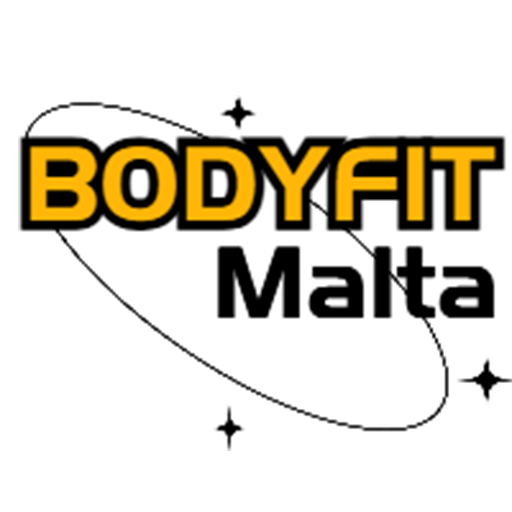Oral hygiene is a cornerstone of overall health, and when you have braces, the complexity of maintaining a clean mouth increases. Braces come with wires, brackets, and bands that can trap food particles, making you more susceptible to dental issues like cavities and gum disease. For residents of Goodlettsville, Tennessee, where dental health is a significant concern, understanding how to maintain oral hygiene with braces is crucial. In this detailed guide, we’ll walk you through the steps to keep your mouth healthy while undergoing orthodontic treatment.
- Understanding the Importance of Oral Hygiene with Braces
Oral hygiene is not just about keeping your teeth white; it’s a critical part of your overall health. When you have braces, the importance of maintaining oral hygiene multiplies. The wires and brackets in your mouth can trap food particles, leading to plaque buildup and potentially causing tooth decay or gum disease.
According to statistics from City Data, the average Goodlettsville resident rates their dental health at just 46%. This makes it even more critical for those with braces to be diligent about their oral hygiene practices to avoid becoming part of this concerning statistic. For local residents, finding the best orthodontist in Goodlettsville, TN is crucial for ensuring that your braces are properly fitted and adjusted, which in turn makes maintaining oral hygiene much more manageable.
- The Right Tools: What You’ll Need
Maintaining oral hygiene with braces requires specialized tools designed to navigate the nooks and crannies that standard toothbrushes might miss. Interdental brushes, water flossers, and orthodontic-friendly toothpaste are some of the tools you’ll need in your arsenal. In Goodlettsville, where over 25% of adults have untreated dental decay, investing in the right tools can make a significant difference in your oral health. These tools can help you combat plaque and food particles that get trapped in your braces, reducing the risk of cavities and gum disease.
- Brushing Techniques: It’s All in the Motion
Brushing your teeth when you have braces requires a different technique to ensure you clean around the wires and brackets effectively. The bristles of your toothbrush need to reach all the hidden areas where food particles can get trapped. Approximately 90% of adults who are 20 years old or older have experienced at least one cavity in their lifetime. Additionally, one in four adults between the ages of 20 and 64 currently has at least one untreated cavity. This alarming statistic underscores the importance of mastering the correct brushing technique when you have braces. You’ll need to angle your brush correctly and use gentle, circular motions to clean effectively.
- Flossing with Braces: A Step-by-Step Guide
Flossing is often a challenge for people with braces, but it’s an essential part of maintaining oral hygiene. A floss threader can help you navigate the floss between your teeth and the wires of your braces. In Goodlettsville, residents use dental floss an average of three days per week. While this is a good start, daily flossing is recommended, especially for those with braces, to prevent the buildup of plaque and food particles that can lead to cavities and gum disease.
- The Role of Mouthwash: More Than Just Fresh Breath
Mouthwash serves multiple purposes; it not only freshens your breath but also kills bacteria and can reach places that your toothbrush or floss may miss. In Goodlettsville, 21% of residents suspect they may have some form of gum disease. Incorporating mouthwash into your oral hygiene routine can serve as an additional line of defense against bacteria, helping to improve your overall dental health.
- Regular Dental Check-ups: Why They’re Crucial
Regular dental check-ups are essential for everyone but become even more critical when you have braces. These appointments allow your orthodontist to adjust your braces and check for any signs of dental issues that may need immediate attention. In Goodlettsville, the average resident last visited a dental professional about two years ago. This gap in dental care makes regular check-ups even more crucial to catch and address any issues before they become severe problems.
- Dealing with Orthodontic Emergencies: Be Prepared
Orthodontic emergencies can happen at any time, and knowing how to handle them is crucial for preventing further complications. Whether it’s a broken wire, a loose bracket, or sudden pain, immediate action is necessary. For residents of Goodlettsville, where dental health is a significant concern, being prepared for orthodontic emergencies is even more critical. A small emergency kit with essentials like orthodontic wax and tweezers can be a lifesaver in such situations.
- Dietary Considerations: Foods to Avoid
Your diet plays a significant role in your oral health, and when you have braces, there are certain foods you should avoid. Foods that are too hard or sticky can damage your braces, and sugary foods can lead to cavities. Considering that more than 90% of American adults have cavities, making dietary changes can have a significant impact on your oral health. Being mindful of what you eat can help you avoid unnecessary trips to the orthodontist for repairs.
- The Psychological Aspect: Building Good Habits
Maintaining good oral hygiene is not just about the physical act of brushing or flossing; it’s also about building good habits. This is especially important in Goodlettsville, where 17% of residents feel self-conscious about their dental health. Building good habits now can lead to a lifetime of better oral health, boosting your confidence and improving your quality of life.
- Beyond Braces: Maintaining Oral Hygiene After Treatment
Once your braces come off, the journey to maintaining good oral health is not over. You’ll likely need to wear a retainer to keep your teeth in their new positions. Just like braces, retainers need to be cleaned regularly to prevent bacterial buildup. For residents of Goodlettsville, where dental health is a significant concern, continuing good oral hygiene practices after your braces are removed is crucial for long-term dental health.
Summary
Maintaining oral hygiene with braces is a multifaceted process that requires diligence, the right tools, and regular check-ups. This is especially important for residents of Goodlettsville, Tennessee, where dental health statistics indicate a need for improved oral care. By following this comprehensive guide, you can navigate the challenges of maintaining oral hygiene with braces setting yourself up for a lifetime of healthy teeth and gums.







